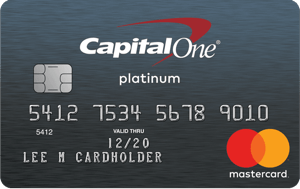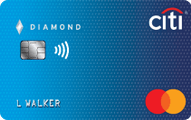If you’re looking for a new card but don’t have much of a credit history, you may have come across secured credit cards during your research and wondered how they differ from regular — or unsecured — credit cards. While both secured credit cards and unsecured credit cards have a lot in common, there are a handful of key differences, such as a security deposit.
Below, CNBC Select breaks down the key differences and similarities between secured credit cards and unsecured credit cards.
What is a secured credit card?
A secured credit card is nearly identical to an unsecured credit card, but you’re required to make a minimum deposit (known as a security deposit), to receive a credit limit. The deposit is typically $200, but may be higher or lower depending on the secured card you open.
The Capital One® Platinum Credit Card offers applicants the chance to qualify for a card with a deposit lower than $200. You could put down a low $49 or $99 deposit and still receive a $200 credit limit.
Secured cards are often marketed toward people looking to build or rebuild their credit. As a result, the security deposit acts as collateral if you default on payments, but it’s completely refundable if you upgrade to an unsecured card or pay off your balance in full and close your account.
The Discover it® Secured gives cardholders a clear path to upgrading to an unsecured card. Starting at eight months from account opening, Discover will review your account to see if you can get your security deposit back. This takes the guesswork out of wondering when you’ll qualify for an unsecured card.
How secured credit cards work
After you make the minimum security deposit, you can start using your secured card just like any other credit card. You can spend up to your credit limit, which is often equal to your security deposit. So a $200 security deposit equals a $200 credit limit. If you want more spending power, you’ll need to deposit more money. The maximum amount you can deposit varies by secured card, but can be up to $2,500.
Some secured cards, such as the Capital One® Platinum Credit Card, may offer a higher credit limit (with no additional deposit required) after you make the first five monthly payments on time, which is also a great incentive to practice responsible credit behavior.
You will incur interest charges if you carry a balance month to month, so make sure you pay your bill in full and on time, which also helps your credit score.
Actions you take with a secured card are reported to the three main credit bureaus (Experian, Equifax and TransUnion), so it’s crucial to avoid maxing out your card and paying off your balance each month.
Secured credit cards vs. unsecured credit cards
Trying to decide between a secured or unsecured card? Your credit score might play a big role in your decision-making.
If you have less-than-stellar credit, a secured credit card may be the better option since they’re typically easier to qualify for with poor credit (scores below 580) or no credit.
If your credit is already good or excellent (scores 670 and greater), an unsecured card can provide you with better benefits that may earn you rewards in common spending categories, such as dining, gas and groceries, Global Entry or TSA PreCheck credit and added entertainment perks. Check out our round up of the best credit cards.
If you decide that a secured card is the best option, consider some of the best secured credit cards listed below. Once you improve your credit, you can transition to an unsecured card.
If you can’t afford the $200 security deposit, you should look to other ways to raise your credit score, including becoming an authorized user on someone else’s account. You might also want to look for a card geared toward consumers with low credit that don’t require a deposit. CNBC Select has a few suggestions in our roundup of the best cards for building credit.
Recommended secured credit cards
There are tons of secured cards available, but some may charge an annual fee or have minimum security deposits over $200. Here are some of the best secured credit cards that have no annual fee and deposits of $200 or less.
Discover it® Secured

-
Rewards
2% cash back at gas stations and restaurants (up to $1,000 in combined purchases each quarter, then 1%); unlimited 1% cash back on all other purchases
-
Welcome bonus
At the end of your first year, Discover automatically matches all the cash back you earned
-
Annual fee
-
Intro APR
10.99% for the first 6 months on balance transfers; N/A for purchases
-
Regular APR
24.49% variable on purchases and balance transfers
-
Balance transfer fee
3% intro balance transfer fee, up to 5% fee on future balance transfers (see terms)*
-
Foreign transaction fee
Pros
- No annual fee
- Discover automatically reviews your credit card account monthly, starting at eight months, to see if your security deposit can be returned while you continue to enjoy your card benefits
- Strong cash-back rewards program
- Simple welcome bonus with no minimum spending requirements
- No fee charged on purchases made outside the U.S.
Cons
- Low credit limit prevents cardholders from charging high-cost items or many expenses
- You have to have a Social Security number and U.S. bank account to apply for this card
- Relatively high 24.49% variable APR
- Discover isn’t as widely accepted as Visa and Mastercard
Capital One® Secured Mastercard®

Information about the Capital One® Secured Mastercard® has been collected independently by CNBC and has not been reviewed or provided by the issuer of the cards prior to publication.
-
Rewards
This card doesn’t offer cash back, points or miles
-
Welcome bonus
-
Annual fee
-
Intro APR
N/A for purchases and balance transfers
-
Regular APR
26.99% variable on purchases and balance transfers
-
Balance transfer fee
-
Foreign transaction fee
Pros
- No annual fee
- $49, $99 or $200 refundable deposit
- Get access to a higher credit line after making your first five monthly payments on time
- No fee charged on purchases made outside the U.S.
- Flexibility to change your payment due date
Cons
- High 26.99% variable APR
- No rewards program
- After you apply and submit your deposit, it takes 2-3 weeks to get your card
- Capital One periodically reviews your account to see if you can be transitioned to an unsecured card, but unlike the Discover it® Secured Card there’s no clear timeline for when this will occur
Information about the Capital One® Secured Mastercard® has been collected independently by CNBC and has not been reviewed or provided by the issuer of the cards prior to publication.
Citi® Secured Mastercard®

Information about the Citi® Secured Mastercard® has been collected independently by CNBC and has not been reviewed or provided by the issuer of the card prior to publication.
-
Rewards
This card doesn’t offer cash back, points or miles
-
Welcome bonus
-
Annual fee
-
Intro APR
N/A for purchases and balance transfers
-
Regular APR
23.99% variable on purchases and balance transfers
-
Balance transfer fee
$5 or 3% of the amount of each transfer, whichever is greater
-
Foreign transaction fee
Pros
- No annual fee
- $200 refundable deposit
- Flexibility to change your payment due date
Cons
- No rewards program
- 3% foreign transaction fee
Information about the Citi® Secured Mastercard® has been collected independently by CNBC and has not been reviewed or provided by the issuer of the card prior to publication.
Information about the Capital One® Platinum Credit Card has been collected independently by CNBC and has not been reviewed or provided by the issuer of the card prior to publication.
Editorial Note: Opinions, analyses, reviews or recommendations expressed in this article are those of the CNBC Select editorial staff’s alone, and have not been reviewed, approved or otherwise endorsed by any third party.
 EU News Digest Latest News & Updates
EU News Digest Latest News & Updates



